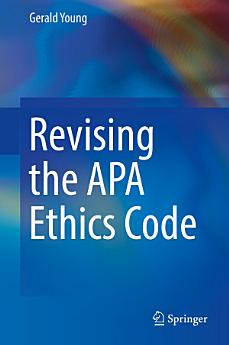Revising the APA Ethics Code
Um þessa rafbók
Included in the coverage:
Comparisonof the APA and CPA ethics codes.
- Proposing five core and five supplementary ethical principles and their sub-principles. Analyzing the APA’s ethical standards toward revising the APA ethics code.
- Elucidating new standards, domains, sub-domains, and meta-principles.
- Culling lessons from the 2017 AMA medical ethics code.
- Examining ethical decision-making: fallacies/biases and models.
- Proposing new concepts, such as participatory ethics and psychological co-regulation.
- Giving concrete and practical recommendations toward revising the APA ethics code and creating a universal mental health ethics code.
An exhaustive text that spans clinical, research, teaching, and education domains, Revising the APA Ethics Code is essential reading for ethics scholars, practitioners, and the APA administrative and ethics committee hierarchies. These real-world guidelines will help ensure that the mental health professions remain both modern and moral.
Um höfundinn
Gerald Young, Ph.D., C. Psych., is a Full Professor, in the Department of Psychology, Glendon College, York University, Toronto, Canada. He is the sole author or senior editor/ co-author of seven books, including on malingering (Malingering, Feigning, and Response Bias in Psychiatric/ Psychological Injury, published by Springer SBM, New York, 2014). For the area of psychological injury and law, he is the first to have organized (a) a scientific association [www.asapil.net], and (b) an academic journal [Psychological Injury and Law [PIL, springer.com], and (c) he has written integrative articles in multiple journals on the topic. His other books include Development and Causality: Neo-Piagetian Perspectives (Springer SBM, 2011) and Unifying Psychology and Causality (Springer International Publishing, 2016). His most recent book is the present one on Toward Revising the APA Ethics Code (2017). He has successfully testified in a case involving the Supreme Court of Canada on the rights of injured workers. He has won awards for his work from both the American and Canadian Psychological Associations, including for lifetime contributions.






